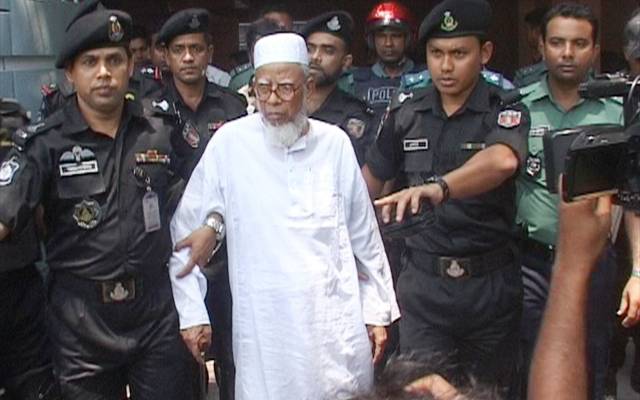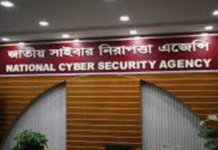A freedom fighter prosecution witness on Sunday told the International Crimes Tribunal-2 that the Razakar, an auxiliary force of the Pakistan occupation army, had carried out atrocities on May 13, 1971 at Ranjitpur village in Bagerhat, leaving 65 people killed, mostly members of the Hindu community.
“Among other victims, I had lost my brother-in-law Sanatan Das and cousin Gobinda Das in the carnage,” recalled PW-21 Dilip Das while testifying against accused Maulana AKM Yusuf, senior nayeb-e-ameer of Jamaat-e-Islami, who founded the Razakar force in aid of the Pakistan junta during the Liberation War.
He further recalled: “Among the victims, 24 martyrs were the inhabitants of village Ranjitpur while the rest, including Muslims, were from neighbouring villages, who took refuge in our village.”
Dilip told the tribunal that during the three-hour raid in the village, the Razakars had carried out looting and also burned down the houses before they left the scene chanting slogans like ‘Pakistan Zindabad’, ‘Yusuf Bhai Zindabad’.
“Immediately after the Liberation War began in March, the villagers armed with bamboo sticks used to guard their locality in groups by rotation,” he said.
The PW-21 said that as the villagers heard beforehand about the imminent attack by the Razakars who were equipped with firearms, they had decided not to prevent the Razakars, rather to go into hiding in nearby hedges,
“Accordingly, when the Razakars swooped on the village firing gunshots, some of us had gone into hiding from where we heard hue and cry of the other villagers.”
PW Dilip said that following the horrendous incident, he had left for India the same night to join the Liberation War. After undergoing 37 days of training at Dehradun Military Academy, I again entered besieged Bangladesh in the last part of June in 1971 for carrying out armed operations.
The PW-21 will be cross-examined by the defence counsel on Monday.
Earlier, PW-20 Ijab Uddin Mian, assistant librarian at the Bangla Academy, concluded his deposition as a seizure-list witness, followed by cross-examination by the defence counsel Mizanul Islam.
During the cross-examination, PW Ijab Uddin told the tribunal that he does not have any idea about the credibility of the seized reports (photocopies) collected from different dailies by the investigation officer of the case as documentary evidence.
On August 1 last year, the tribunal indicted Yusuf, senior nayeb-e-ameer of Jamaat-e-Islami, for his involvement in crimes against humanity during the 1971 Liberation War.
The tribunal considered 13 out of 15 charges of crimes against humanity during the 1971 Liberation War as proposed by the prosecution on May 8 last year which fall under sections 3(2), 4 (1) and 4 (2) of the International Crimes (Tribunals) Act 1973.
Founder of the notorious Razakar outfit during the 1971 Liberation War, Yusuf, also the second man in the hierarchy of Jamaat leadership, faces charges, including genocide, killing, loot, arson, deportation of people and religious conversion.
According to the prosecution, Jamaat leader Yusuf, a member of the infamous Malek cabinet in occupied Bangladesh, a rubberstamp government backed by the Pakistan junta, had formed for the first time in Khulna in 1971 the vigilante group Razakar with the members of Jamaat-e-Islami that acted as an auxiliary force of the Pakistan occupation army to actively thwart the Bangladesh liberation forces.
Yusuf had also acted as the chairman of the Peace Committee (Collaborator) at Bagerhat, Satkhira and Khulna districts during the Liberation War.
Source: UNBConnect










